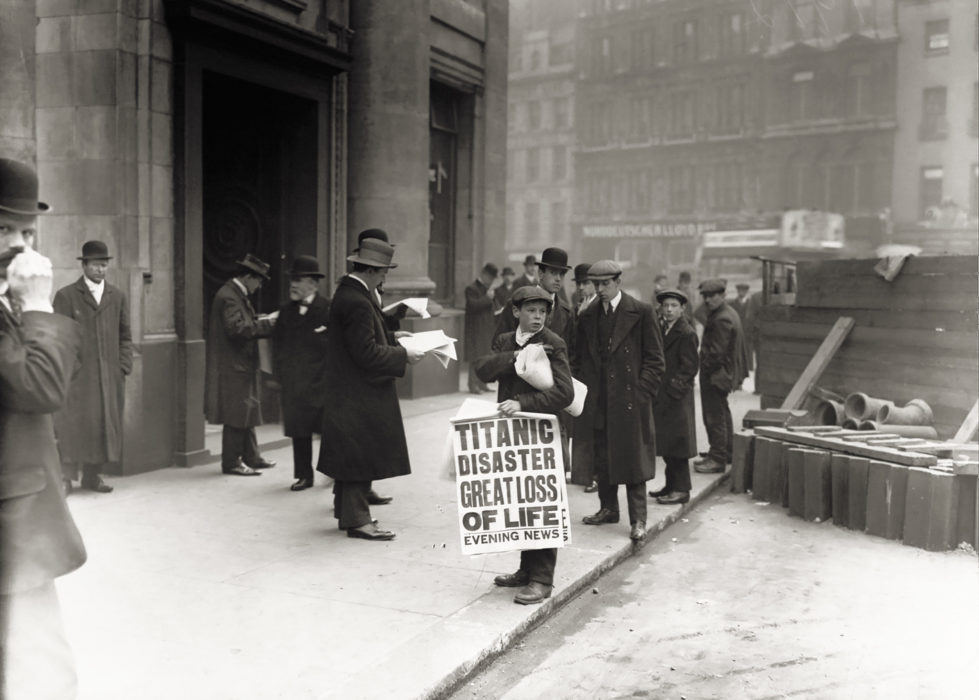PRESIDENT WILLIAM HOWARD TAFT was beside himself.
His close friend and military aide, Major Archibald Butt, was returning on the Titanic from a special state visit to the Pope. But like everyone else, the President had believed the afternoon papers on April 15, stating that Titanic was being towed to Halifax and there was no loss of life. So he had gone to Poll’s Theatre that evening to see Nobody’s Widow. “He was nearly frantic when he learned the truth about 11 o’clock,” the New York Times reported, “and went at once to the telegraph room at the White House to read the Associated Press bulletins and the bulletins from The New York Times Washington office.”.
A White House attaché arrived early the next morning at the White Star Line offices at 9 Broadway. Throngs of people lined the sidewalks in front of the building’s ornamental white terra cotta facade and crammed the Bowling Green on the other side of the street. Many were in tears. But the White House man heard the same response that most of the others had received when they submitted the names of their loved ones who were passengers on the ship: “There is no mention of the name, in the list of the rescued so far received from the Carpathia.”

Then Taft met with his Cabinet. “The deception of the American people yesterday in the use of wireless telegrams that now are known to have had no foundation of fact for their statements was taken up and discussed,” the Times reported. Across the ocean the Times of London wrote, “These must have been pure inventions, and inventions of a cruel and heartless kind.”
Aboard the Cedric six days earlier in New York Harbor, ‘Abdu’l-Bahá had spoken to the reporters about the responsibilities of the modern mass media before he had said anything else. He had emphasized to the reporters who surrounded him that their papers did more than simply report news: they had the power to construct the public’s perception of what was true. “Newspapers are a mirror which is endowed with hearing, sight and speech,” he said. “Those who play for their own little selfish ends give no true light to the world and perish of their own futility.” He later told his American friends to be careful about trusting anything they read about him, and only to invest their certainty in written words bearing his own signature.

It turned out that many of the fake dispatches about the Titanic had come from the vicinity of Boston. In this new era of modern media, any amateur with the right kind of gadget could get the strange and dangerous idea that they had the right to amuse themselves at public expense by breaking the news.
Taft instructed the Department of Justice to collar the perpetrators, but the problem was that, unlike in Britain and Canada, the United States had no laws to regulate the use of the wireless telegraph. “It seems likely, therefore,” the Times opined, “that if the detectives succeed in running down the senders no proceedings will lie against them.”






